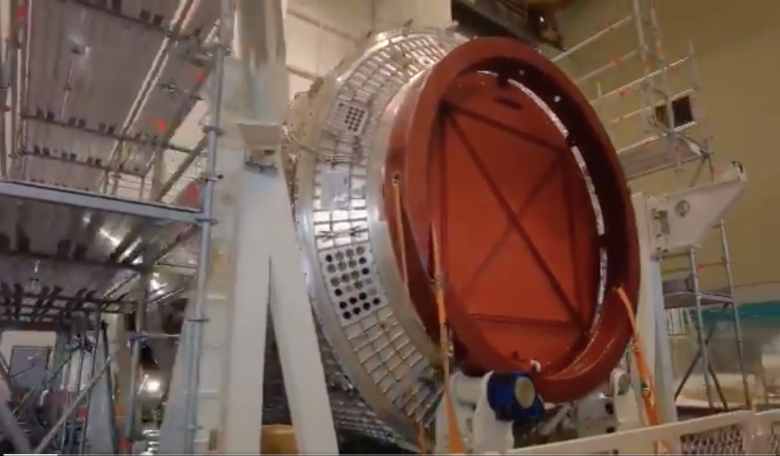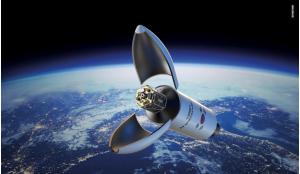The first piece of Russia's new space station – a Science Power Module that was originally intended for the International Space Station (ISS) – will be ready for launch in 2025, said Roscosmos Director General Dmitry Rogozin on Tuesday, cementing the notion that Russia will withdraw from the ISS programme and go it alone.
"The first basic module for the new Russian Orbital Service Station is already in the works. The Energia Rocket and Space Corporation has been tasked to ensure its readiness for launch to the target orbit in 2025," Rogozin Tweeted yesterday in a post, which also included a video of Energia staff at work.
News that Russia might be forging ahead with its own plans for a space station emerged last year, when a report from Russian manufacturer RSC Energia, the prime developer and contractor of the Russian crewed spaceflight program, noted that the ISS was on the verge of catastrophic failure due to worn out components. Its dilapidated state would be so costly to repair that Russia should focus on completing its own orbital station instead, said Flight Director of the Russian Segment of the ISS, Vladimir Alekseevich Soloviev.
This has recently been echoed by Russian Deputy Prime Minister Yuri Borisov, who during an interview on Russian TV said that the deterioration of the ISS could lead to disaster in the future, reports Russian news agency, TASS.
"We cannot endanger the life of [the astronauts]. The situation, which today is associated with the ageing of the structure, iron, can lead to irreversible consequences - before a catastrophe. This must not be allowed," Borisov said, referring to the need to create a Russian orbital station.
During the interview, Borisov also indicated that the countries future national space station could be used as a staging post for the exploration of the Moon and cislunar space.
“This is one of the new functions. And maybe it is being considered very seriously, the station is as a kind of transfer point, such an intermediate one, in particular for flights and exploration of the Moon and near-lunar space," Borisov said.
According to TASS, the Deputy Prime Minister also discussed deploying the station to a orbit higher than the one currently in use by the ISS. "We need to climb higher. <...> This will allow us to see the Russian territory as much as possible, and especially, which is very important, the polar regions, and this is also connected with the development of the Northern Sea Route," he said.
Since its launch in 1998, the ISS has become one of the most ambitious international collaborations in human history. It is currently financed by all of its collaborators, but receives the majority of its funding from NASA, Roscosmos and the European Space Agency.
Recently however, support for the ISS has been overshadowed by countries and organisations announcing the construction of their own versions, such as China and private firm, Sierra Nevada Corporation (SNC).
While an involvement with other countries was not ruled out, like China, Russia is ready to sole finance the construction of a new space station, the Deputy Prime Minister said in his TV interview; “we will definitely take them, but we will cope [with financing] on our own”, he said.
Despite the latest development, key officials are upholding Russia’s involvement in the ISS say TASS and that "a decision has been made at the upper levels" to continue the operation of the station until 2028. This was backed up by Rogozin who explained that the state corporation is monitoring the state of the ISS, and that “it is too early to write it off”.











